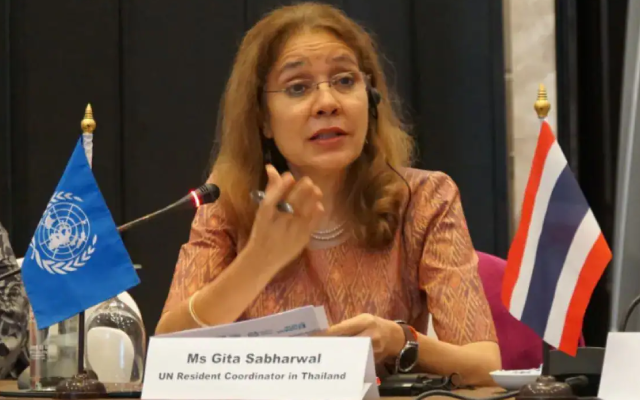Gita Sabharwal, an Indian national, has been named by UN Secretary-General António Guterres as the UN resident coordinator in Indonesia.
The UN said in a statement that Sabharwal, who started her job on Monday, brings nearly thirty years of experience in development supporting social policy, governance, climate transition, and sustainable peace while utilizing digital technology and data to accelerate the Sustainable Development Goals (SDGs).
With the approval of the host government, Sabharwal was appointed as the UN resident coordinator in Indonesia, the statement stated.
“Just landed in Jakarta! Very honoured as I look forward to serve, as @UN Resident Coordinator (designate), the govt and people of #Indonesia through @UNinIndonesia, together with 26 UN agencies in one of the region’s largest economies, in support of #SDGs,” Sabharwal said in a post on X.
Previously, Sabharwal served as the UN resident coordinator in Thailand and as peacebuilding and development adviser for the United Nations in Sri Lanka.
Before joining the UN, Sabharwal was The Asia Foundation’s deputy country representative for the Maldives and Sri Lanka and held positions as the poverty and policy adviser for the United Kingdom’s Department for International Development in India and Vietnam.
Sabharwal holds a master’s degree in development management from the University of Wales in the UK.
The UN resident coordinator is the highest-ranking representative of the UN Development System at the country level. Resident coordinators lead UN country teams and coordinate UN support to countries in implementing the 2030 Agenda. The resident coordinator is the designated representative of — and reports to — the UN secretary-general, according to the world body.
In order for the UN development system to assist in addressing the nation’s needs, priorities, and challenges to achieve the SDGs, resident coordinators are tasked with representing the UN at the highest levels of State and, in conjunction with the appropriate agency representatives, fostering engagement with the government, civil society, bilateral and multilateral partners, academia, and the private sector, according to the world body.
Read More




